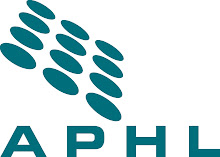One of the buildings severely damaged in the earthquake was the public health laboratory. Deemed unsafe for use, laboratory operations moved to a tent erected outside of L'Hôpital de l'Université d'État d'Haïti (HUEH). Since the earthquake, the number of patients being treated at HUEH has tripled from 14,000 per month to almost 42,000 thus increasing demands for laboratory testing. Due to extremely high temperatures and no air conditioning in the tent, automated testing requiring cooler temperatures, such as hematology and blood chemistry, are being run manually. The result is that the current testing capacity is only 25% of the daily demand.
 Following the earthquake, the Centers for Disease Control and Prevention requested and authorized APHL Senior Technical Consultant and Team Leader for the APHL Haiti Field Laboratory Support Team, Dave Doherty, to assist all of the public health network laboratories in Haiti in getting testing services back up and running to support the enormous demands for medical care and treatment
Following the earthquake, the Centers for Disease Control and Prevention requested and authorized APHL Senior Technical Consultant and Team Leader for the APHL Haiti Field Laboratory Support Team, Dave Doherty, to assist all of the public health network laboratories in Haiti in getting testing services back up and running to support the enormous demands for medical care and treatmentUpon learning of the dire needs in the tent laboratory, Doherty sought out to find an air conditioner that would help keep the tent at the appropriate temperature. Before he knew it, a casual conversation with a Doctors Without Borders volunteer led him to International Relief Solutions (IRS), a Georgia based company that creates modular buildings in areas of need. The APHL Haiti Field Laboratory Support Team led by Doherty provided technical assistance to IRS in planning and design of a new modular laboratory facility to will replace the temporary tent facility.
 The 24’ by 36’ modular laboratory will stand next to HUEH. The facility is designed with infrastructure for work benches, heating, ventilation, plumbing and electrical services. With direct hookup to electrical and water supplies, the laboratory building will have the air conditioning necessary to meet the requirements of the many intricate and delicate tests that the laboratory technicians on scene perform routinely. The lab will arrive with the electrical system and plumbing pre-installed allowing for a quick start-to-finish set up of approximately four days.
The 24’ by 36’ modular laboratory will stand next to HUEH. The facility is designed with infrastructure for work benches, heating, ventilation, plumbing and electrical services. With direct hookup to electrical and water supplies, the laboratory building will have the air conditioning necessary to meet the requirements of the many intricate and delicate tests that the laboratory technicians on scene perform routinely. The lab will arrive with the electrical system and plumbing pre-installed allowing for a quick start-to-finish set up of approximately four days. Better lab facilities will improve testing services and will enable laboratory technologists to get back to work. According to Doherty, “Many well-trained technologists in Haiti are unable to work and provide testing services because of the loss of laboratory facilities to earthquake damage.”
It could be years before the permanent structures are rebuilt; the new modular lab serves as a long term solution. This initiative was a success due to the collaboration of willing and committed partners, each of whom brought essential resources and expertise to assure an effective solution for meeting a critical need in Haiti. Lives will be saved and illnesses treated effectively because of the efforts of APHL, IRS and CDC. Doherty modestly explains, “We were able to come through. APHL has always come through in Haiti.”






